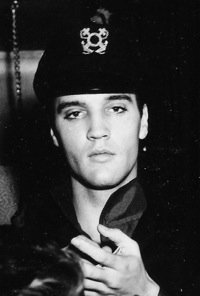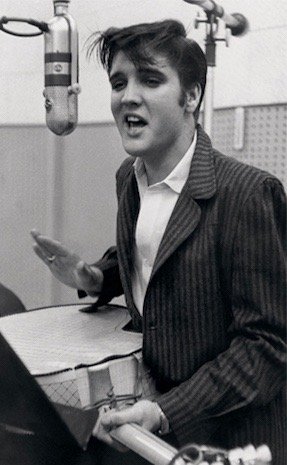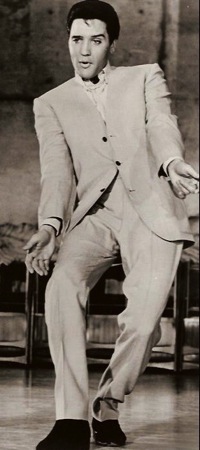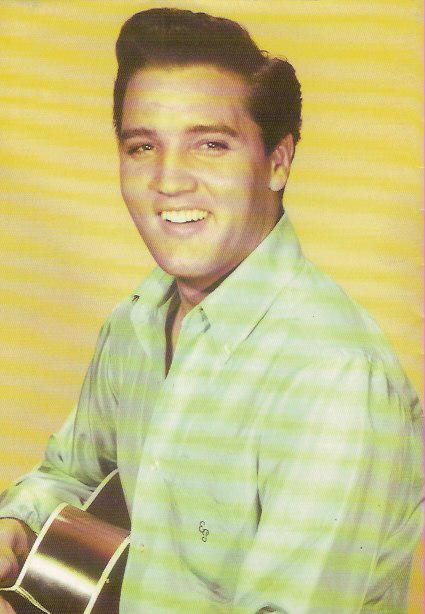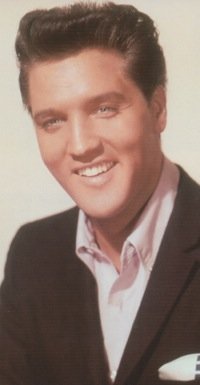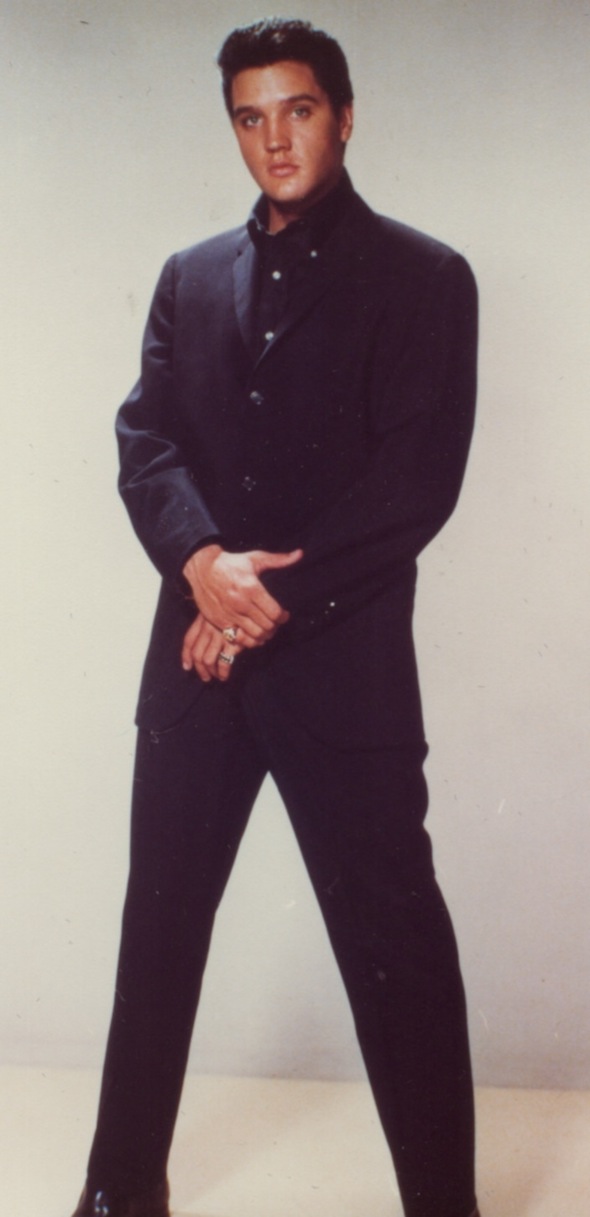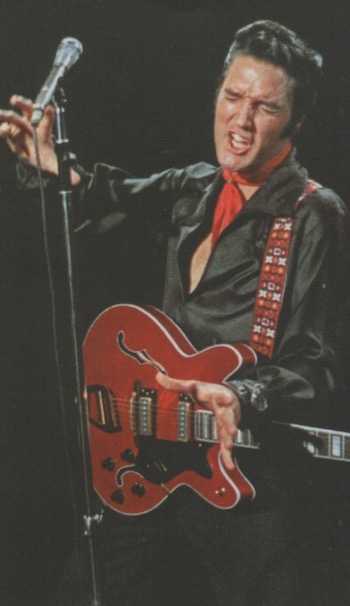Elvis History Blog
Elvis and The Beatles …
What They Really Thought of Each Other
Tackling Elvis and The Beatles together is a difficult task for any objective writer. The Fab Four made a number of public statements about Elvis, but he had very little to say about them, at least openly. Since his death, however, many who were in his inner circle have revealed what Elvis allegedly said and felt about The Beatles. Unfortunately, the members of the Memphis Mafia often have contradicted each other, and so it is with their revelations about Elvis and The Beatles.
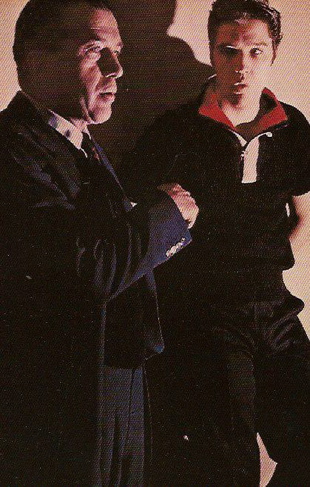
Take, for example, the August 1965 evening when The Beatles spent four hours at Elvis’ Bel Air home in California. What really happened there that night? In a 2009 Goldmine magazine article entitled, “Crossing Paths: When Elvis Met The Beatles,” author Gillian Gaar reported that both Colonel Parker and Brian Epstein nixed any recordings, either visual or audio at the meeting. So, for the details of that encounter, we’re forced to depend solely on the remembrances of those who were there. Unfortunately, the accounts of Elvis’ good ol’ boys are confusing, as usual.
• Elvis’ boys disagreed about his jamming with The Beatles
Gaar’s main source of information was Jerry Schilling’s book, “Me and a Guy Named Elvis.” We’ve always been told that Elvis and The Beatles engaged in an unrecorded jam session that night. Not so, says Schilling. “They never jammed together,” he asserts. “That was just wishful thinking.” Both Paul McCartney and George Harrison have also denied there was any jamming that night.
But look at what a couple of Memphis Mafia eyewitnesses have written. Marty Lacker not only says the jam occurred, but also that it was Elvis’ idea. “I thought we’d talk a while and maybe jam a little,” Lacker claims Elvis told The Beatles. “And when he said that, they went nuts,” Lacker added. “They all went to the piano, and Elvis handed out a couple of guitars. And they just started singing—Elvis songs, Beatles songs, Chuck Berry songs. Elvis played Paul’s bass part on ‘I Feel Fine,’ and Paul said something like, ‘You’re coming along quite promising on the bass there, Elvis.’ I remember thinking later, ‘Man, if we’d only had a tape recorder.”
And then Alan Fortas, another Presley insider, had the following to say in his memoir. “I know that Elvis and the Beatles got into a hell of a jam session that evening, but, oddly, it was more instrumentals than singing.”
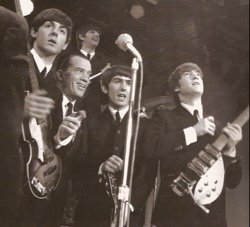
According to Gaar, John Lennon supported Lacker and Fortas by saying several times that a jam did indeed occur. So where does that leave us? It would be nice to believe that Elvis and The Beatles played together, but barring any solid evidence, I have to believe that it didn’t happen. Of all the Memphis Mafia crew, Jerry Schilling comes across as the most intelligent and the most honest.
• Fear of losing Kingship caused Elvis to resent Fab Four
Let’s go on to a more interesting topic, that being what Elvis and The Beatles thought of each other. In the beginning, both Lennon and McCartney acknowledged Elvis’ influence on them. “Before Elvis, there was nothing,” Lennon is often quoted as saying. “'Heartbreak Hotel’ seemed a corny title, but then, when I heard it, it was the end for me.” But, after The Beatles exploded on the scene in 1964, Lennon also said, “We wanted to be bigger than Elvis,” and Presley’s fear of that very thing was probably at the root of his personal dislike of The Beatles.
“There are differing reports on Presley’s feelings about The Beatles,” says Gaar. “According to some accounts, his response on being asked to meet the Fabs was ‘Hell, I don’t want to meet those sons of bitches!’ But Schilling insists there was no jealousy; Presley was simply more concerned with the state of his own career at the time.”
However, Fortas, Lacker, and Billy Smith all recall that Elvis considered The Beatles a threat to his own popularity. “Beatlemania was in full bloom,” said Fortas, “and Elvis was scared … His records occasionally broke into the Top 10, but he knew he was really just hanging on … The Memphis Mafia, however, knew better than to mention the Beatles in Elvis’ presence.”
Billy Smith has written that Elvis felt threatened by The Beatles but tried to hide it. “When the Beatles were on The Ed Sullivan Show,” Smith recalls, “the Colonel sent a telegram that Sullivan read on the air, a kind of ‘Welcome to America’ thing. It made it seem like Elvis was a fan, but also like he wasn’t worried about their success and what it might do to his.”
• Nothing personal in Elvis’ dislike of The Beatles
At that point, Elvis apparently had nothing personal against John, Paul, George, and Ringo. He actually liked some of their songs, including Yesterday and Hey Jude. Billy Smith contends that Elvis felt a musical connection with The Beatles. He explained as follows:
“He thought the early Beatles were really similar to his early music. He loved the loud, hard-driving sound that they had. He wanted that himself. Elvis was always fighting for his records to sound some other way than how they did … he wanted his records to sound raw … He’d play a Beatles record, and he’d say, ‘This is what I’m looking for right here. I want that drive back.’”
During his 1968 “Comeback” Special, Elvis made a rare public statement about The Beatles. “I really like a lot of the new groups—The Beatles, the Beards, and whatever,” he said. However, it was a statement he made to President Richard Nixon in December 1970 that unfortunately will always be remembered as his ultimate assessment of The Beatles. In an effort to convince the president to issue him a Bureau of Narcotics and Dangerous Drugs badge, Elvis may have been saying what he thought Nixon wanted to hear. In any event, Gaar quotes Nixon aide Bud Krogh as saying he heard Elvis tell Nixon that The Beatles were “kind of anti-American.” Paraphrasing Elvis’ comments, Krogh said Elvis then charged The Beatles with coming to the U.S. to make money and then went home and made “anti-American” remarks. That statement later prompted Ringo Starr to say in The Beatles Anthology documentary that Elvis had tried to get the group “banned” in America.
Gaar found Elvis’ statement puzzling. “While members of The Beatles were publicly critical about America’s involvement in Vietnam and refused to play segregated venues in the U.S.,” Gaar observed, “they more often spoke of their love of American music, and, of course, Lennon would later settle in U.S. It may have been Lennon’s more radical protests that had been taking place in recent years that Presley was thinking of. The Beatles themselves had actually split the previous April. In any case, Presley didn’t elaborate further on his comment.”
• Paul McCartney honored Elvis’ memory
In mentioning ongoing connections after Elvis’ death, Gaar noted that Paul McCartney had purchased the standup bass that Bill Black used on stage with Elvis in the fifties. In a PBS performance a few years ago, McCartney unveiled the bass before a small studio audience. With the instrument in his hands, he visualized himself being on stage with Elvis. “If I were Bill Black, then Elvis would have been right there,” he observed, pointing to a spot just a few feet in front of him. Then McCartney played the bass while singing Heartbreak Hotel. In spite of the petty jealousies Elvis evidently harbored against The Beatles, Paul McCartney, at least, clearly still honored the inspiration that Elvis provided him in his youth. — Alan Hanson | © October 2009
Reader Comment: I found the article quite interesting … shows that the Beatles and Elvis listened to each other (that is until Mr. Presley passed). —Ken: March 2024
Go to Elvis History
Go to Home Page
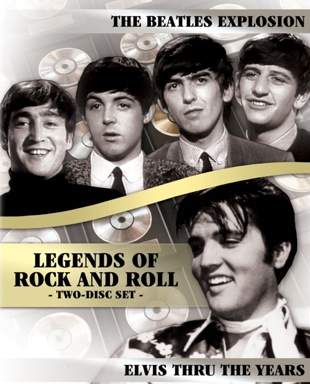
"Lennon said, 'We wanted to be bigger than Elvis,' and Presley’s fear of that very thing was probably at the root of his personal dislike of The Beatles."
